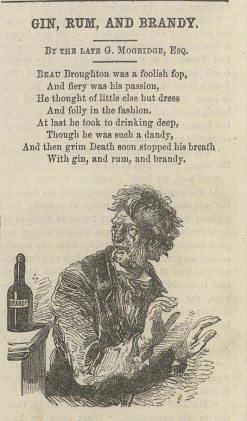The Victorian ‘Drunkard’s’ and the Millennial’s Spending Habits
The enduring preoccupation with money is proliferated in numerous articles that we are bombarded with on social media and in the press. What is striking about some of the titles in The British Workman is that they could be interchangeable for articles written today. For example, ‘Take Care of the Pence and the Pounds Will Take Care of Themselves’ mirrors the dominant discussion about the spending habits of young working people. These articles perpetuate the notion that millennials are financially irresponsible in the same way that people who spent their money on beer.
The assertion that “People are more tempted to extravagance in small than in great matters” was published in 1864 but would be applicable in any modern article about how millennials spend their money. The crackdown in the press on the apparent millennial indulgence in everything from coffee, sandwiches and avocados, mirrors the nineteenth-century temperance movement. The British Workman frequently warns of the dangers of drinking for the underpinning reasons that it damaged the identity of the honest working husband, it was financially negligent, and ultimately damaged ability to work. The attitudes presented in both current press and in the British Workman are underpinned by the theme of workplace security.
The British Workman promotes the values of ‘honest’ work, and ‘sensible’ living to combat the inherently ambiguous world of work. Articles that flippantly discuss millennial spending and saving habits, with titles such as ‘This is why millennials can’t have nice things (or save any money)’ , are disconnected from the day- to-day realities of casualised low-paid labour. Articles in similar vein that proclaim millennials do not have the work ethic of the baby boomer perpetuate the idea that millennials struggle for success simply because they don’t work as hard. These generalisations dismiss the inherent inequalities that graduates face which studies have demonstrated are a concrete reality. Articles that condemn the millennials’ work ethic provide far too simple a solution to a complex process of entering the world of work and they ultimately dilute the complexity and uncertainty of finding a place that if it doesn’t reward you with money, at least works for you.
Read next: Ambition and Adversity: John the Scullion and ‘Multi-career women’
VT
